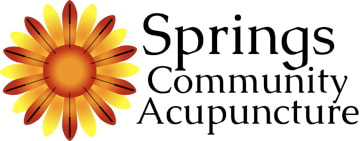|
When Kyndl decided to write about her experience treating stroke, it made me pause and reflect on my own history. In my mid-30s, I had a stroke that profoundly affected my life. My stroke was caused by a dissected vertebral artery that sent a series of small blood clots into the back of my brain (primarily the cerebellum.) Early on I was exhausted and struggled to function, even though most of my symptoms weren’t visible. It has been a long and winding journey. As I work with patients who are recovering from stroke and head injuries, I draw on that experience, encouraging them to expand their toolkit. Here is the most common advice I give. 1. Rest, Rest, Rest. The brain needs a lot of rest to recover. This is “next level” rest that you may never have experienced before. Nap, move slowly, find ways to increase the restfulness of your life. Think of it as a yin practice of reducing stimulation and enjoying quiet. Find things that calm your nervous system and put you in a state of healing. Things I’ve found helpful include laying on the earth, being in nature, using a weighted blanket and listening to guided meditations. [The caveat here is that there is also a need for movement. If you have lost mobility or have paralyzing vertigo, it is essential that you find ways to move as well. The brain needs to be challenged.] 2. Focus on Nutrition. Eat a diet rich in antioxidants, i.e. lots of fresh fruits and veggies and minimal processed foods. You may become more sensitive to caffeine, alcohol, sugar or common allergens in your diet. Be willing to eliminate things that are hard on your body. Explore brain-supporting supplements like Omega 3s or fish oil, amino acids like L-Theanine and GABA (to name a few). Also, the brain is more prone to anxiety and depression after an injury. If you are struggling with anxiety or depression, medication can be helpful - this is a great time to consider all your options. 3. Assemble Your Team. You may benefit from acupuncture, craniosacral therapy, physical therapy, occupational therapy, counseling, neurofeedback, biofeedback and more. Look for practitioners who have experience treating stroke or brain injuries. You’ll need a variety of support in different stages of the healing process. When you hit a plateau, it may be time to take a break from a therapy or try something new. 4. Cultivate Patience. The recovery process will take longer than you think. Sometimes this is frustrating, as you face unexpected plateaus, but know that improvements will continue to come. If you get discouraged, investigate neuroplasticity - the brain and nervous system are continuously adapting in amazing ways! Laugh about it. Celebrate improvements you notice rather than focusing on when you’ll “get back to normal.” Make sure the people around you understand this too. Seek out the support of others who have made this journey before you. Remember, you are being transformed in the healing process, not reaching back to a previous state of health. Recommended Books: My Stroke of Insight by Jill Bolte Taylor The Brain that Changes Itself and The Brain’s Way of Healing, by Norman Doidge The Antianxiety Food Solution by Trudy Scott Anything by Dr Dan Seigel, who also has great meditations on his website: https://www.mindsightinstitute.com Let us know what resources you've found helpful! Please comment below. - Hannah Beachy, L.Ac.
3 Comments
6/24/2021 09:18:17 pm
Thank you for sharing this with us Hannah! It's a beautiful tale of perseverance, hope and healing. Inspirational and full of compassion:)
Reply
Jennifer Logullo
10/13/2021 11:29:03 am
So many people try to do too much after a stroke without allowing their body time to heal and recover. These tips are a great reminder to take time for rest and proper nutrition. Additionally, if you're recovering at home, the tips in this article may be helpful as well: https://endeavorhomecare.com/try-these-easy-tips-to-improve-stroke-recovery-at-home/
Reply
2/26/2023 04:38:14 am
It was fascinating to know that stroke patients should look for ways to improve the restfulness of their life. My friend wants to be able to help stroke patients. I think it's best for him to take stroke scale education to earn certification.
Reply
Leave a Reply. |
Authors:
|

 RSS Feed
RSS Feed